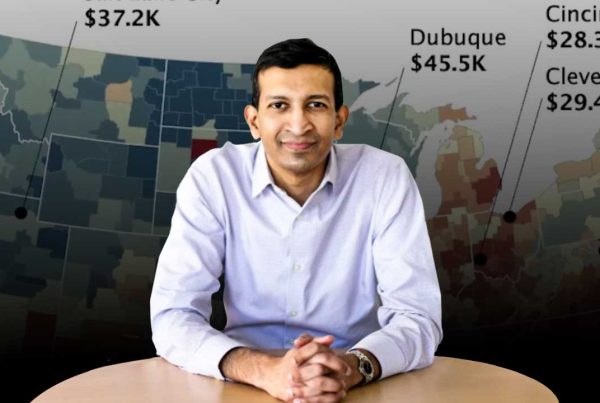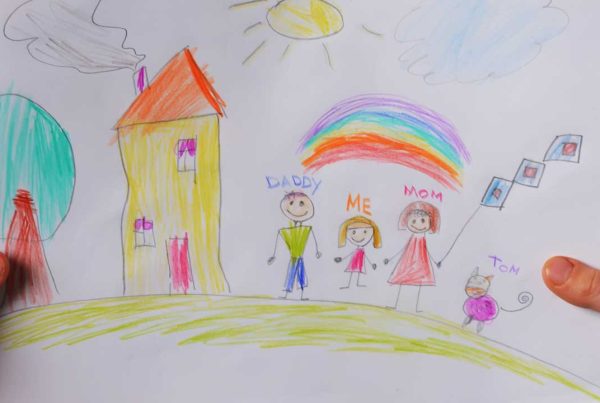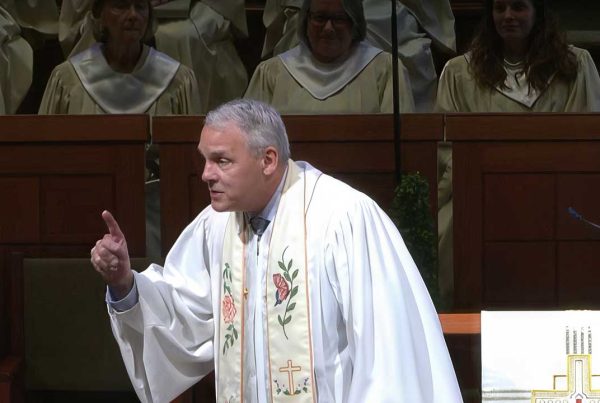ABCs: Accountability, Bridge Building and Courage
As we continue to absorb insights from the Faith & Action April 15th spring conference and the recent faith leaders roundtable with the Mind Trust, we are challenged to understand how we can transform what we learned into meaningful action. One common action for all – including the faith, nonprofit, business, and philanthropy communities – is to recognize two key questions: Where can we provide access to opportunities for those confronting poverty, and where do we ourselves contribute to roadblocks or barriers? For answers, we start by assessing structures and systems, first within our own organizations and then externally, specifically holding our elected officials accountable for where funding goes and how it is prioritized for our city and state. We must ensure that those we elect are committed to quality education for all kids, to criminal justice reform, and to economic policy reform. In these efforts, we can learn from the work of Faith in Indiana, an organization highlighted in our grant video. Second, we must break down silos. This was a founding message for the Faith & Action Project, and we have been encouraged to see the community awakening on this point. To continue this progress, we must ask ourselves how we can reimagine relationships among organizations and congregations, and how we can discern what bridges need to be built. In all of this, we must learn, continually: about the communities we serve, about the needs and gaps in opportunity that families face, and about the trauma that families and kids experience. We must find organizations that can help us wrap our arms around individuals confronting poverty, and we must nurture cross-sector conversations that can help to bring our neighbors support, hope, compassion, and access to opportunity. We must accelerate the extraordinary work being done in our community and connect it to dedicated groups and faith communities. That last point is important. Throughout our nation’s history, effective social movements have been galvanized, fortified, and sustained by diverse communities of faith and conviction. From the abolitionist movement to the Civil Rights Movement and beyond, faith has spurred and inspired individuals and communities. We believe it can again, and our assertion is supported by research showing that faith organizations – with their local knowledge, moral authority, and communal credibility – are uniquely positioned to help guide and support social movements. So how do we embody our faith traditions in ways that can lead to systemic change? How do we use our voice and position to fight for racial equity? For this, I find inspiration in a quote Rabbi Dennis Sasso recently shared with me, adapted from a teaching by Rabbi Mordecai Kaplan: “Bravery is in the face of a physical challenge; courage is in the face of a moral challenge.” Yes, as we fight for justice in a time of moral dilemma, a time when human dignity is challenged by questions about a person’s sexual orientation or skin color, we must enlist the courage that can be built on foundations of faith. Certainly, we need all sectors to join in this fight, but most of all we need faith communities to boldly demand justice and mercy for all. The Rev. Harrison Jones, pastor at Witherspoon Presbyterian Church, succinctly underscored this admonition in the recent roundtable discussion: “The moral agency of the church is to engage in the political landscape and hold our systems accountable.” Let’s accept that admonition, and harness our courage to spark a revolution of hope, forging a collaborative effort of faith communities, nonprofit organizations and leaders in business and government to turn back poverty and systemic injustice. Lindsey Nell Rabinowitch Director, Faith & Action Project
True Justice Viewing Guide, Hosting Opportunity
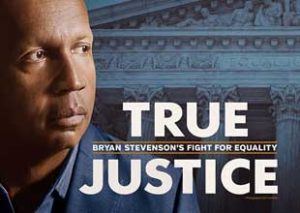 As a prelude to Just Mercy author Bryan Stevenson’s appearance at the Faith & Action Fall Event, the virtual Faith & Action spring conference shined a light on the ways systemic racism contributes to the cycle of poverty. To build on these lessons, CTS is offering resources for faith partners to engage in group dialogue about the documentary True Justice: Bryan Stevenson’s Fight for Equality. A customized Discussion Guide created by Michael Twyman, who has made it his life’s work to drive more equitable outcomes for Indianapolis’ marginalized populations, will prepare groups to view the film and then drive discussions about the issues it raises. Faith based nonprofits or faith groups interested in hosting discussion events built around the film can apply for grant support through the Project. Designed to be a catalyst for engagement, advocacy, and action against racism, the discussion guide is expected to be available in June. Stay tuned for more details.
As a prelude to Just Mercy author Bryan Stevenson’s appearance at the Faith & Action Fall Event, the virtual Faith & Action spring conference shined a light on the ways systemic racism contributes to the cycle of poverty. To build on these lessons, CTS is offering resources for faith partners to engage in group dialogue about the documentary True Justice: Bryan Stevenson’s Fight for Equality. A customized Discussion Guide created by Michael Twyman, who has made it his life’s work to drive more equitable outcomes for Indianapolis’ marginalized populations, will prepare groups to view the film and then drive discussions about the issues it raises. Faith based nonprofits or faith groups interested in hosting discussion events built around the film can apply for grant support through the Project. Designed to be a catalyst for engagement, advocacy, and action against racism, the discussion guide is expected to be available in June. Stay tuned for more details.
First Grant Application Deadline Tomorrow, May 6
Does your group have an initiative that you believe makes a meaningful impact on poverty, one that could be accelerated with additional resources? A Faith & Action Grant might be the opportunity you’re looking for. Faith & Action Grants provide funds to initiatives that show success in breaking the cycle of poverty and moving families out of poverty for the long term. As you consider applying for a grant, think about faith communities, nonprofit organizations or agencies with which you could collaborate. To create the best applications, highlight approaches that:
- can be replicated and expanded;
- deliver measurable outcomes;
- are built on partnerships and collaboration;
- have a plan for ongoing sustainability.
The grant application deadline is May 6, at noon. Click here to learn more.
City Takes on Housing Challenges
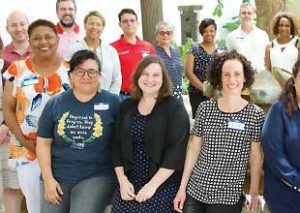 Participants in the Faith & Action Spring Conference heard it loud and clear from local panelists: Housing is a key challenge for those living in or on the cusp of poverty. The city of Indianapolis says help is on the way in the form of its Anti-Displacement and Inclusive Growth Policy Agenda. With an emphasis on four issues – rental assistance, the loss of affordable housing, the quality of available rental housing, and ongoing affordability in properties receiving city subsidies – the Agenda will, according to Mayor Joe Hogsett, help the city “spur equitable housing strategies that will lay a foundation for future generations.” Learn more from Inside Indiana Business, or read the full agenda here.
Participants in the Faith & Action Spring Conference heard it loud and clear from local panelists: Housing is a key challenge for those living in or on the cusp of poverty. The city of Indianapolis says help is on the way in the form of its Anti-Displacement and Inclusive Growth Policy Agenda. With an emphasis on four issues – rental assistance, the loss of affordable housing, the quality of available rental housing, and ongoing affordability in properties receiving city subsidies – the Agenda will, according to Mayor Joe Hogsett, help the city “spur equitable housing strategies that will lay a foundation for future generations.” Learn more from Inside Indiana Business, or read the full agenda here.
Worth Reading
Three articles for reading this month:
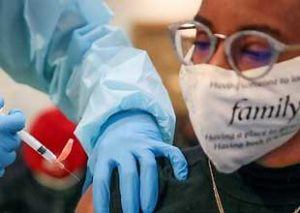 In our Spring Conference, Nisha Patel noted the impact of social networks on economic mobility. The Brookings article “Social Networks and Economic Mobility: What the Findings Reveal” offers added perspective on the power of social networks.
In our Spring Conference, Nisha Patel noted the impact of social networks on economic mobility. The Brookings article “Social Networks and Economic Mobility: What the Findings Reveal” offers added perspective on the power of social networks.- Many white Evangelicals are choosing not be vaccinated against COVID-19, often for political reasons. Writer and social commentator Kristen V.H. Middleton argues in Sojourners that this is a decidedly un-Christian position, as it puts one’s own agenda ahead of the needs of others, especially the people of color who are at greatest risk of contracting the virus. Read her essay “Love Thy Neighbors. Get Vaccinated.” to learn more.
- As a follow up to our faith leaders’ roundtable on equity in education and Soledad O’Brien’s comments last fall around the importance of access to affordable education without crippling debt, click here to read a Brooking summary of what the Biden Administration plans to do about student loans.
Mark your calendar May 6, 2021, Noon: Faith & Action Grant Application Deadline October 5, 2021, 7 PM: Faith & Action Fall Event


